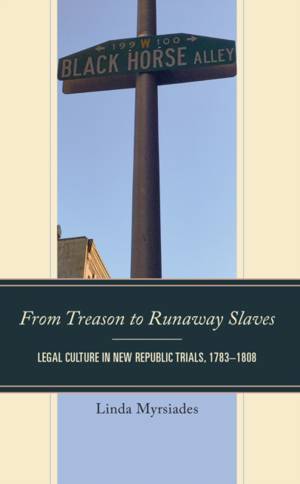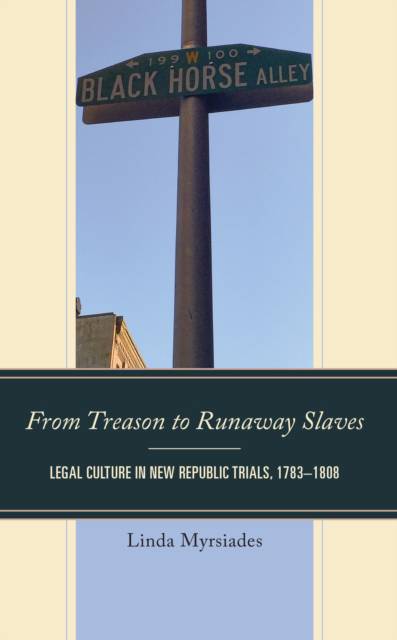
- Afhalen na 1 uur in een winkel met voorraad
- Gratis thuislevering in België
- Ruim aanbod met 7 miljoen producten
- Afhalen na 1 uur in een winkel met voorraad
- Gratis thuislevering in België
- Ruim aanbod met 7 miljoen producten
Omschrijving
Law in early America was culturally special, not just a foundation for history but for the culture that bound the nation and its collective identity. From Treason to Runaway Slaves studies six high-profile trials (military order, Indian murder, land seizure, treason, libel, interracial urban crime) that incorporate themes to which the early republic attached special significance. The trials demonstrate the criticality of legal culture and legal history and the central role of the rule of law in a democracy. Tracking the new nation's bitterest and most challenging moments, we are led to ask what lies below the surface; what is American society really like; how did we come to be who we are?
The book fits into the area of eighteenth-century legal culture and history, tracing across the chapters the development of early American law during the critical formative period 1783 to 1808 and focusing on important historical moments (courts martial in the American Revolution, the Whiskey Rebellion, the Philadelphia Yellow Fever epidemic, runaway slaves, among others). It attends to such areas of law as treason, libel, land law, murder, and racial justice as well as the growth of a legal profession and the changing influence of judges, juries, and lawyers.
Specificaties
Betrokkenen
- Auteur(s):
- Uitgeverij:
Inhoud
- Aantal bladzijden:
- 298
- Taal:
- Engels
- Reeks:
Eigenschappen
- Productcode (EAN):
- 9781683933847
- Verschijningsdatum:
- 20/11/2023
- Uitvoering:
- Hardcover
- Formaat:
- Genaaid
- Afmetingen:
- 152 mm x 229 mm
- Gewicht:
- 607 g

Alleen bij Standaard Boekhandel
Beoordelingen
We publiceren alleen reviews die voldoen aan de voorwaarden voor reviews. Bekijk onze voorwaarden voor reviews.












